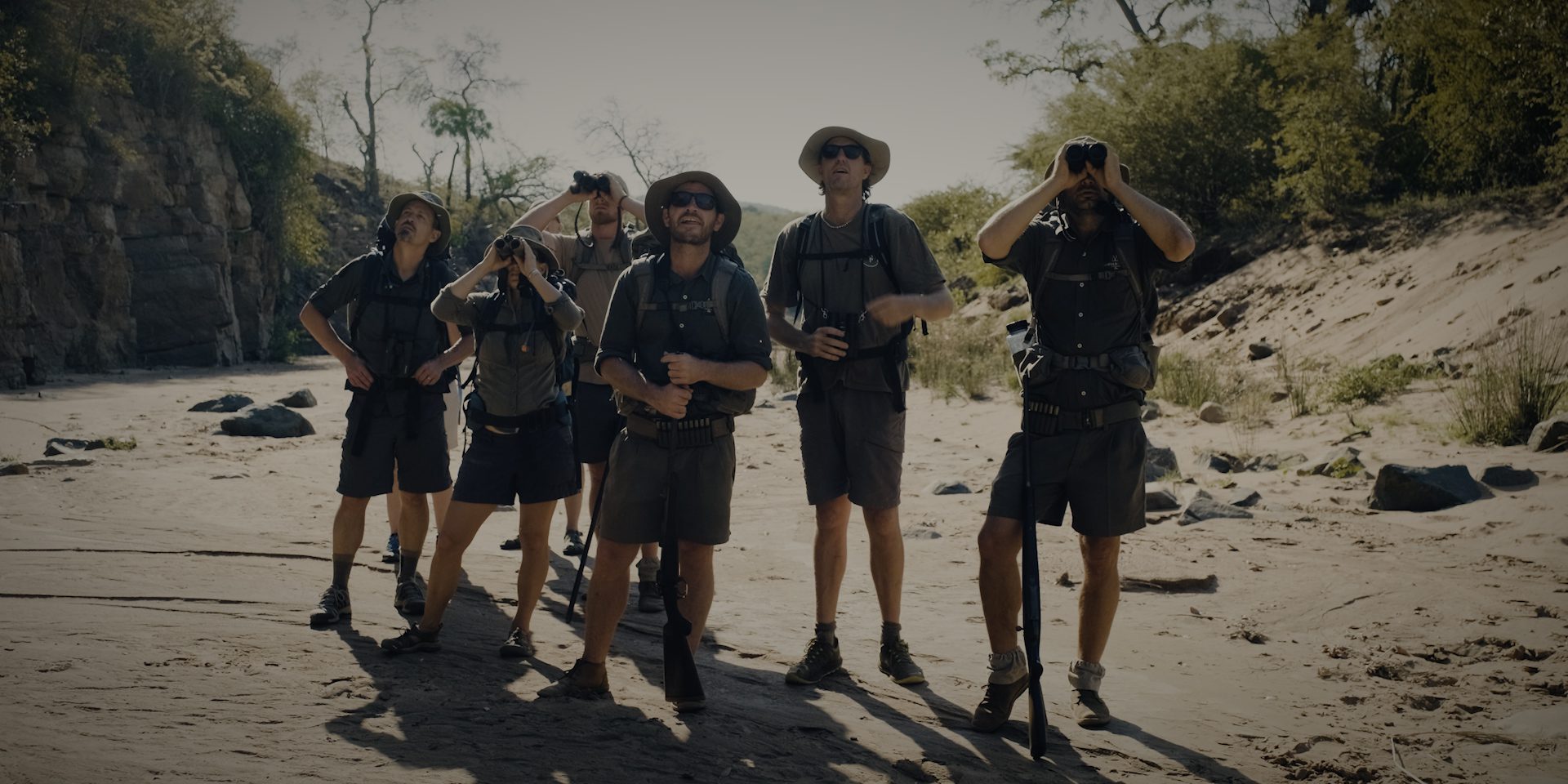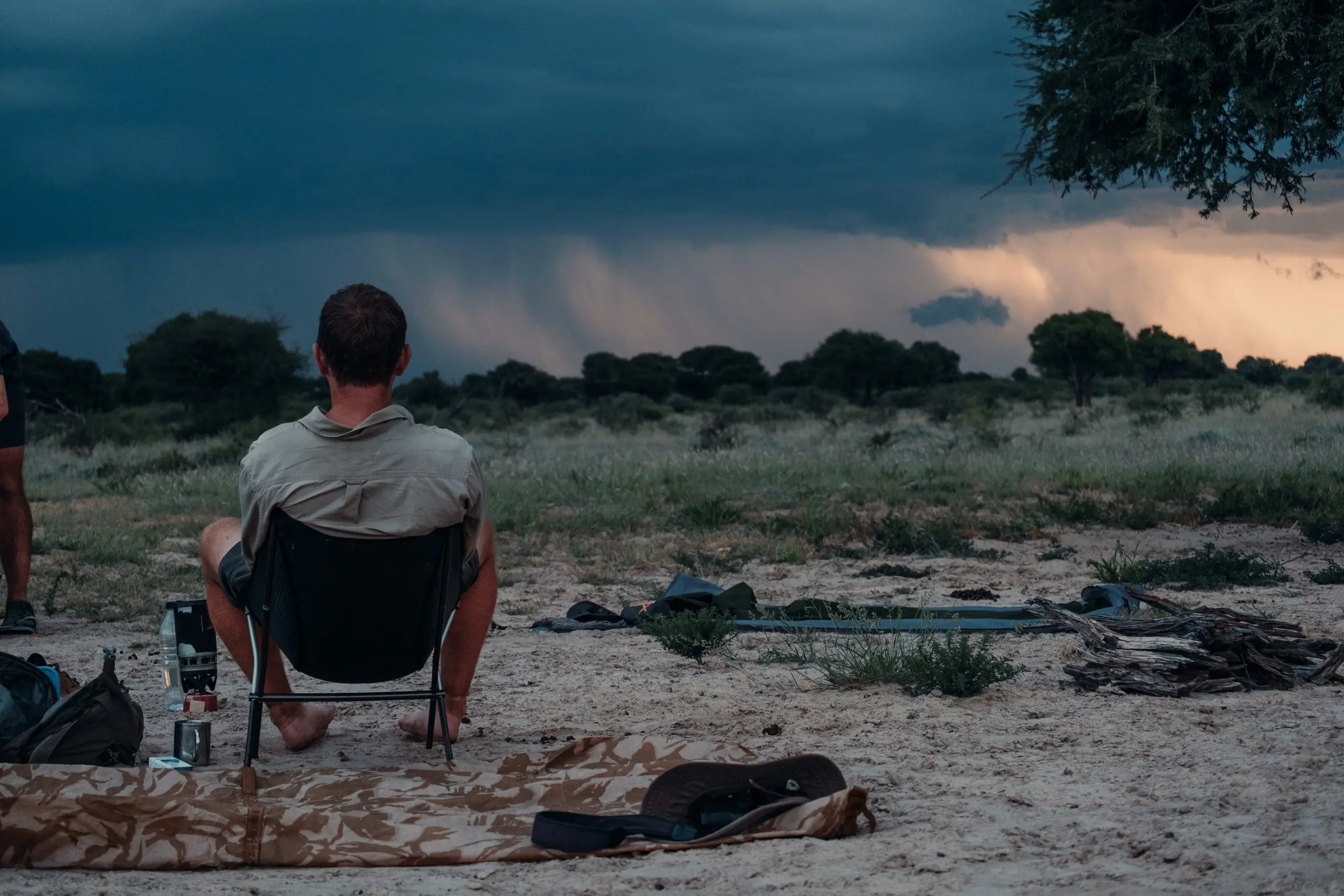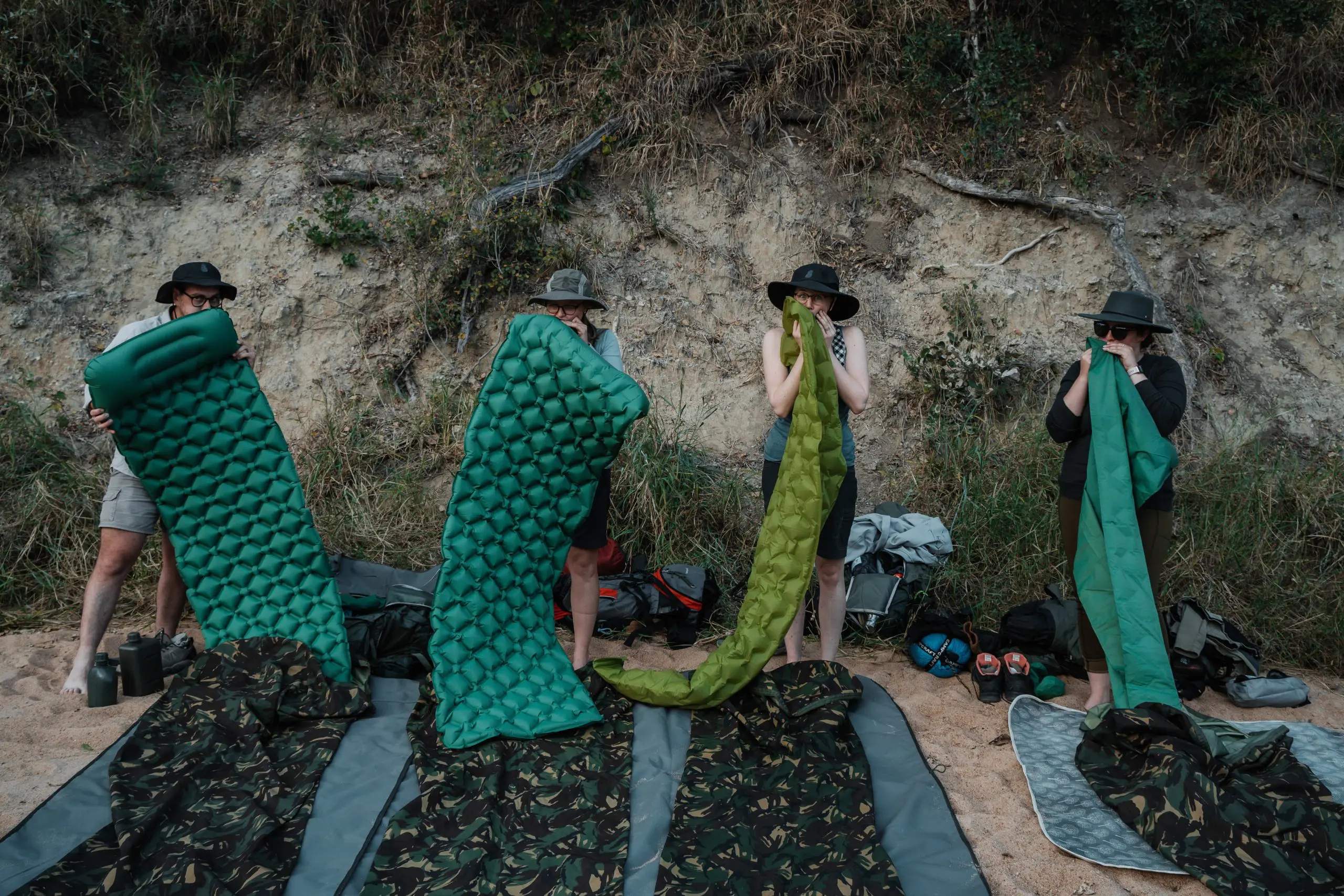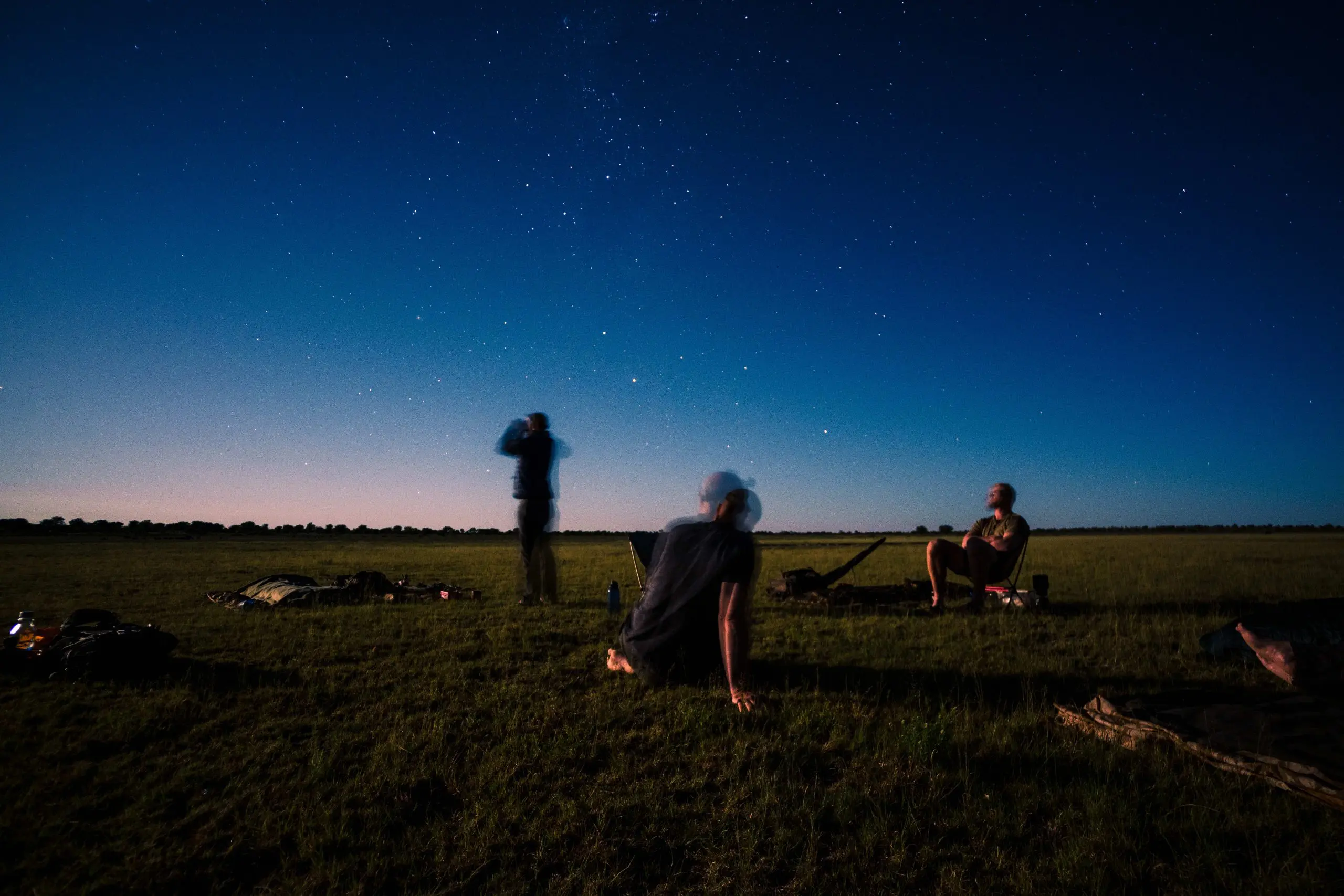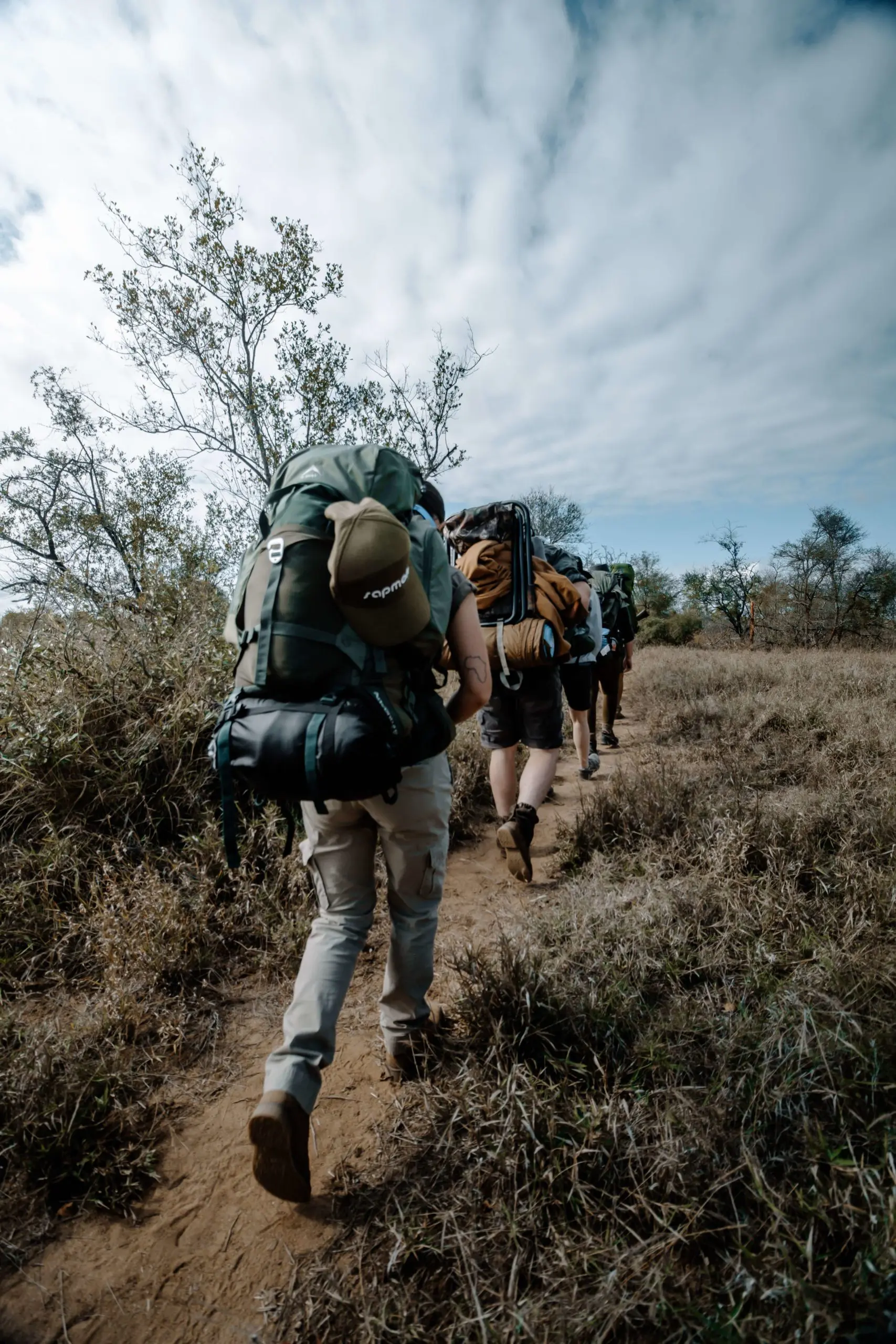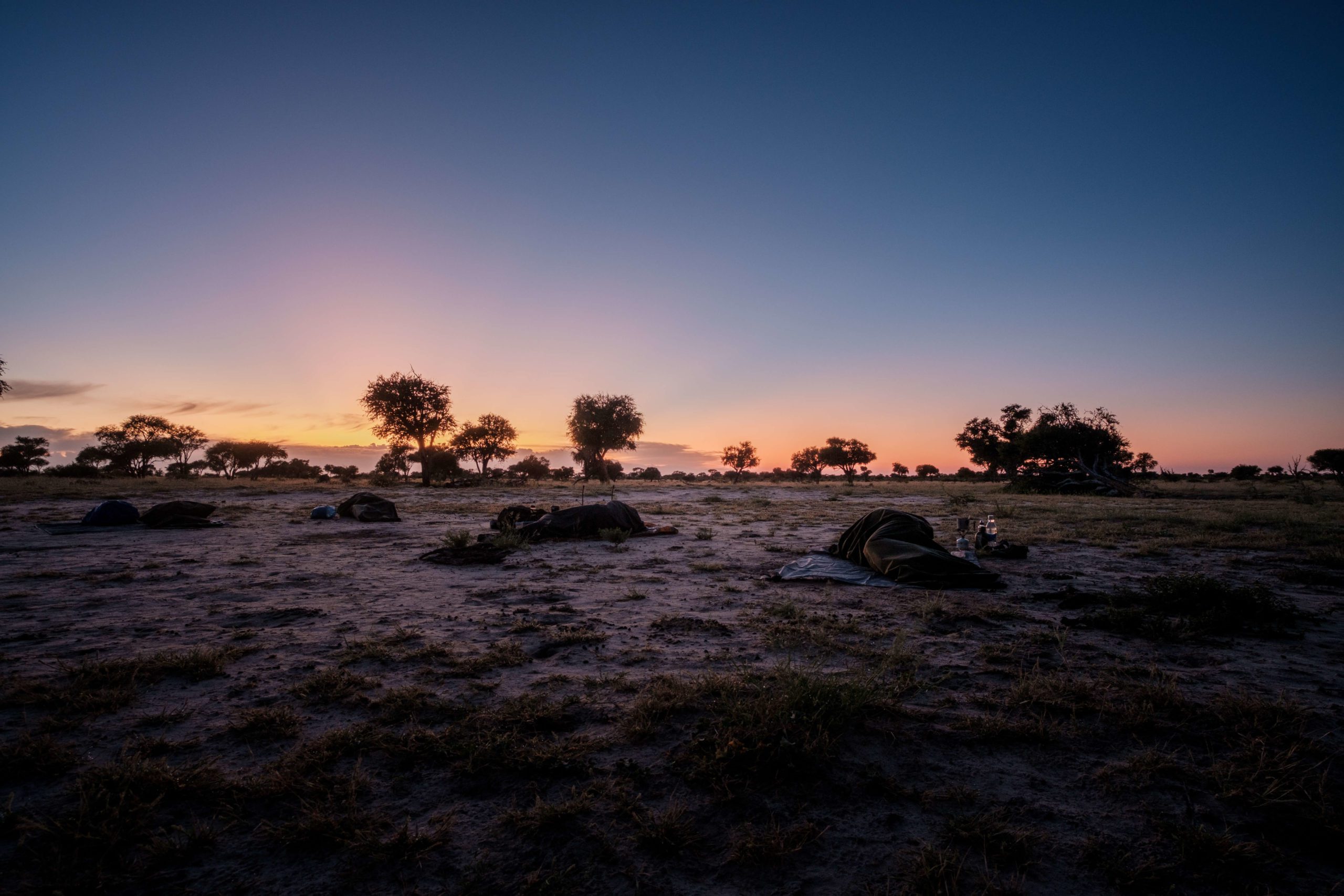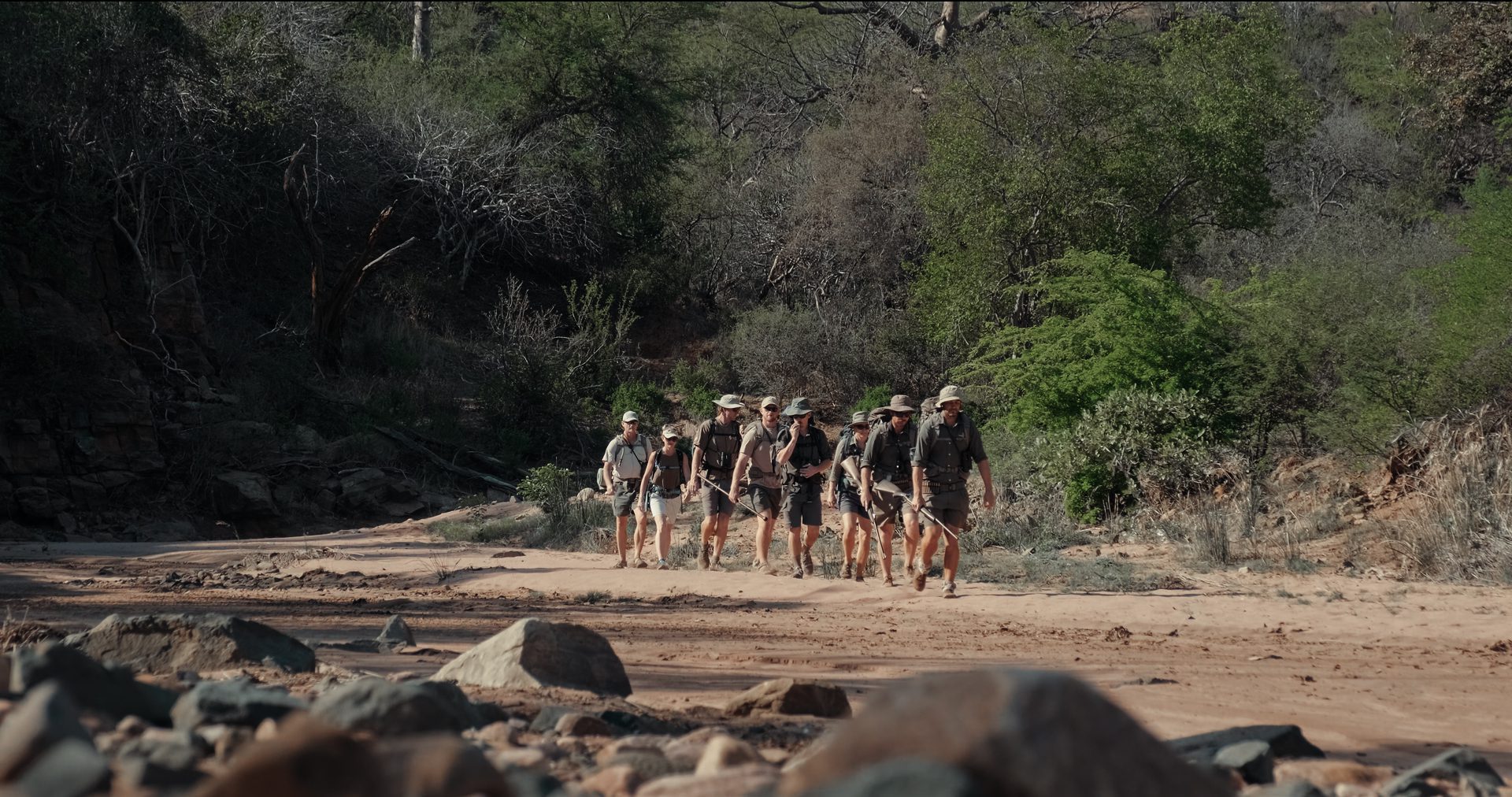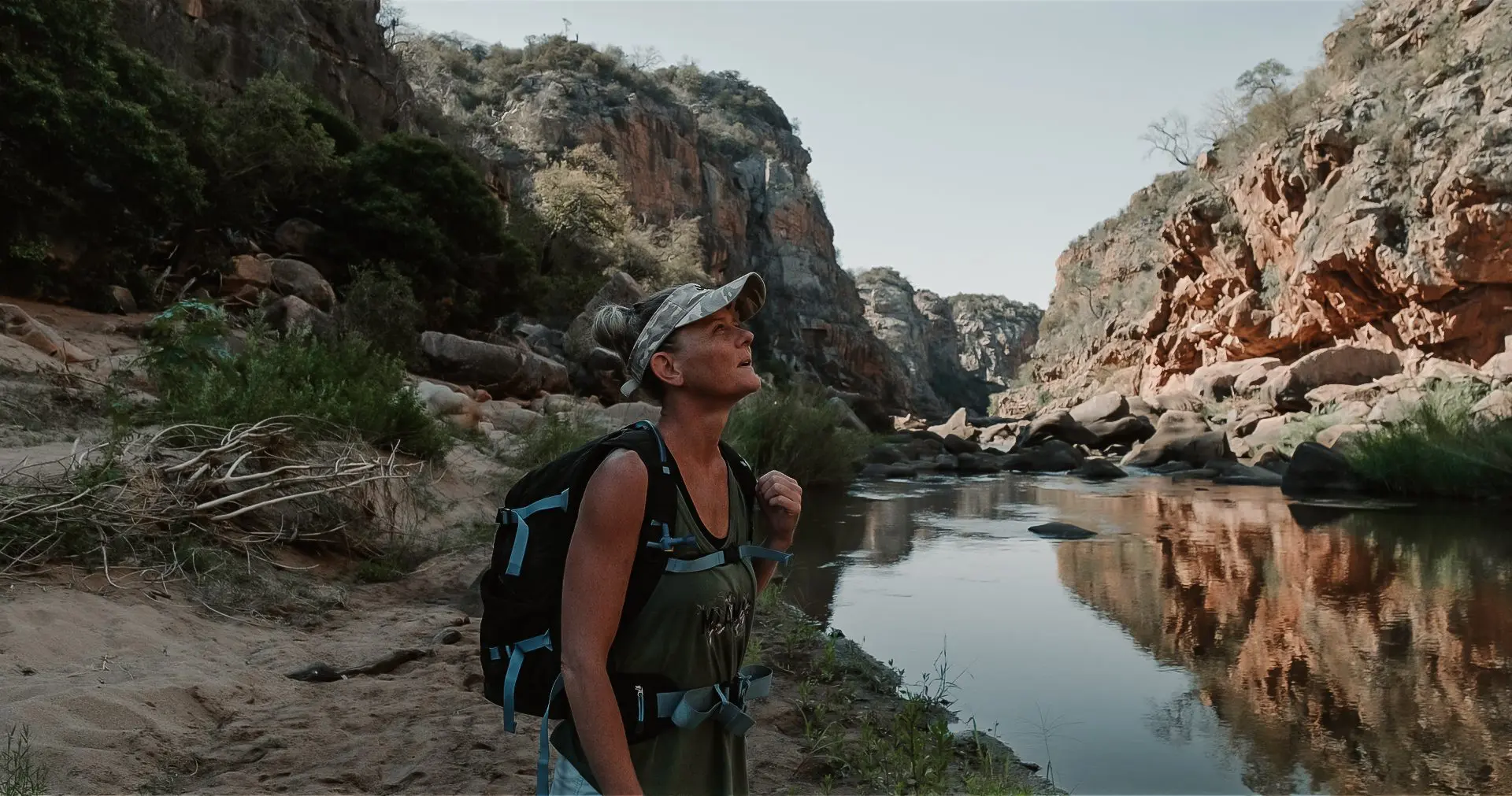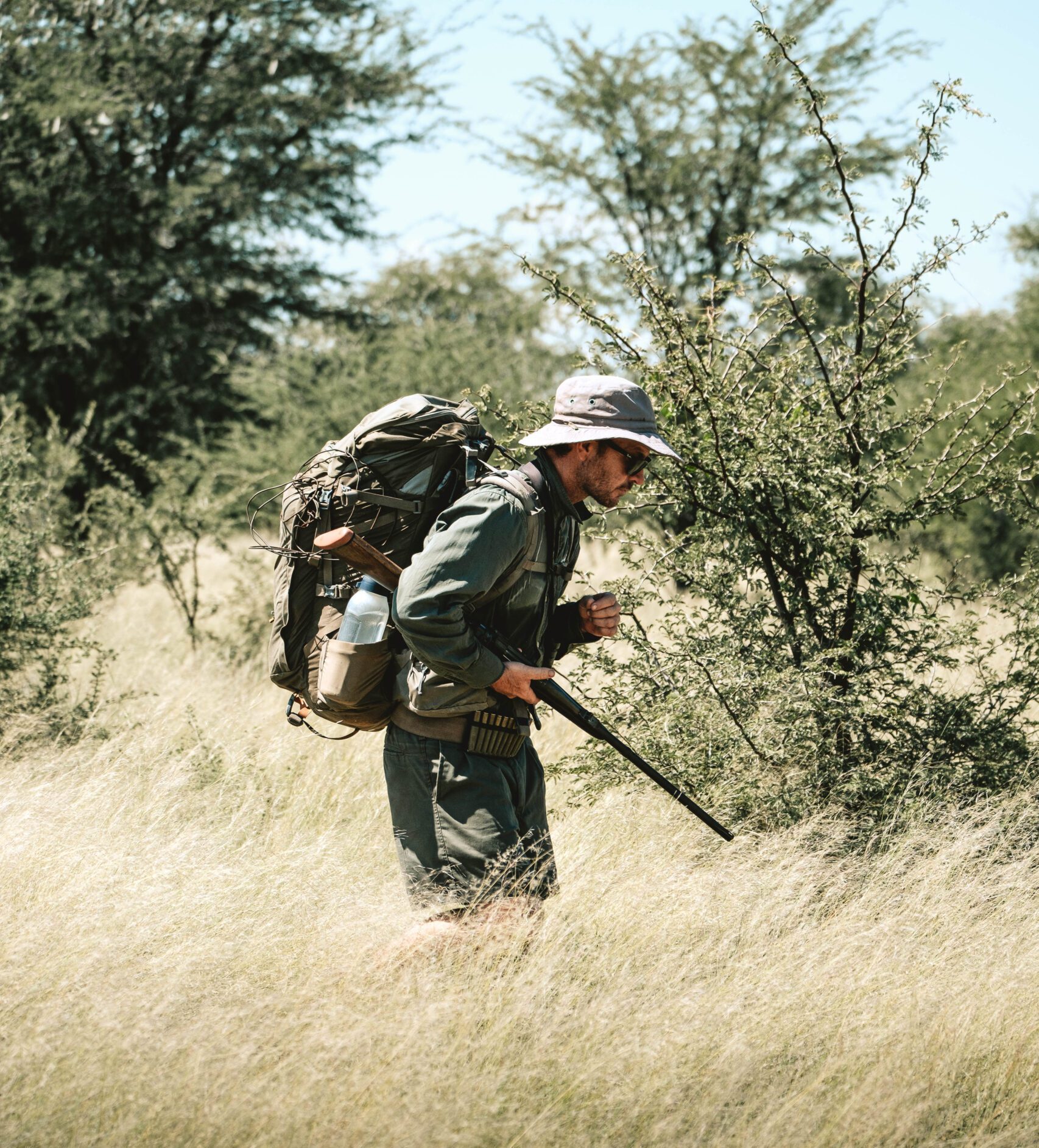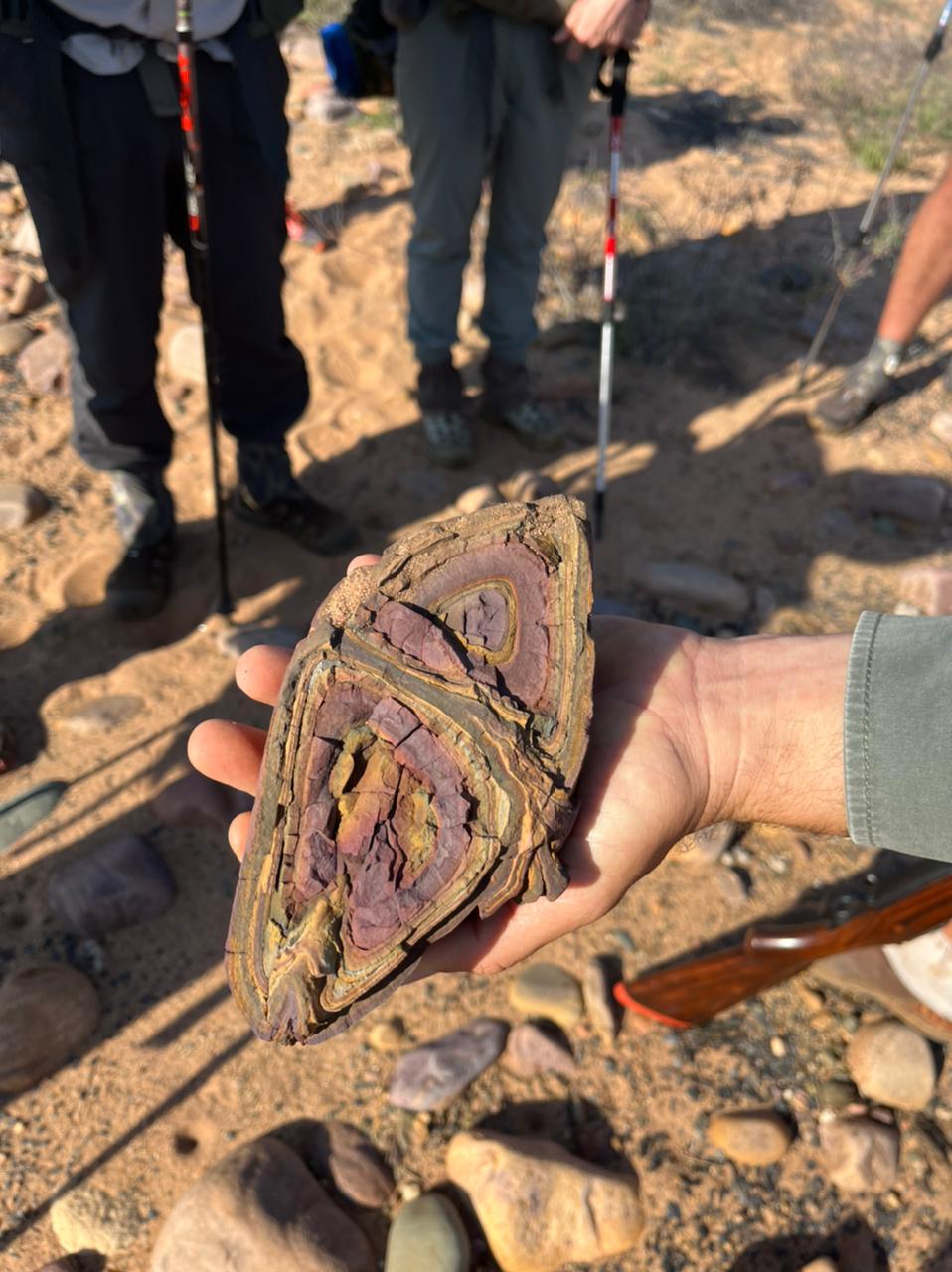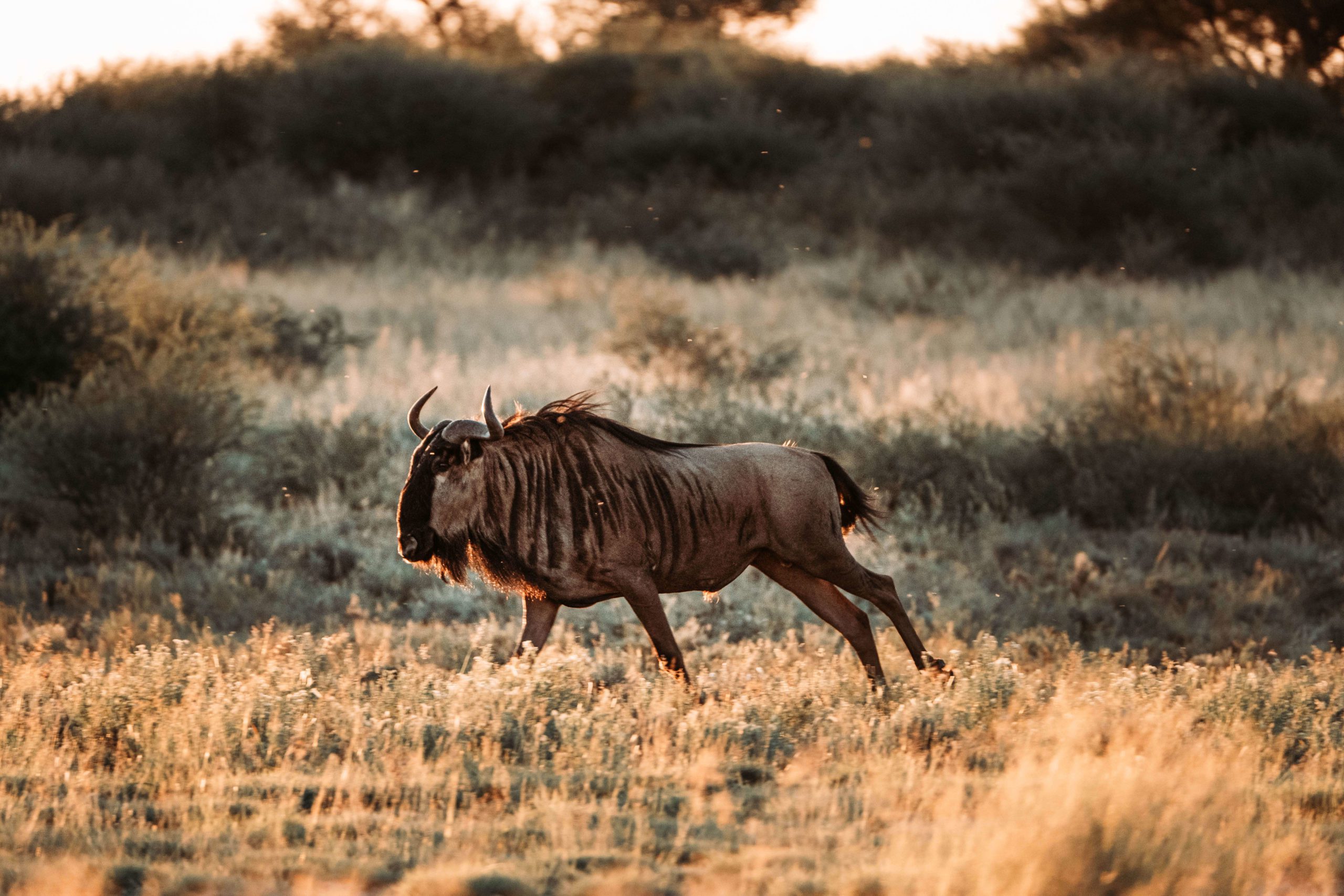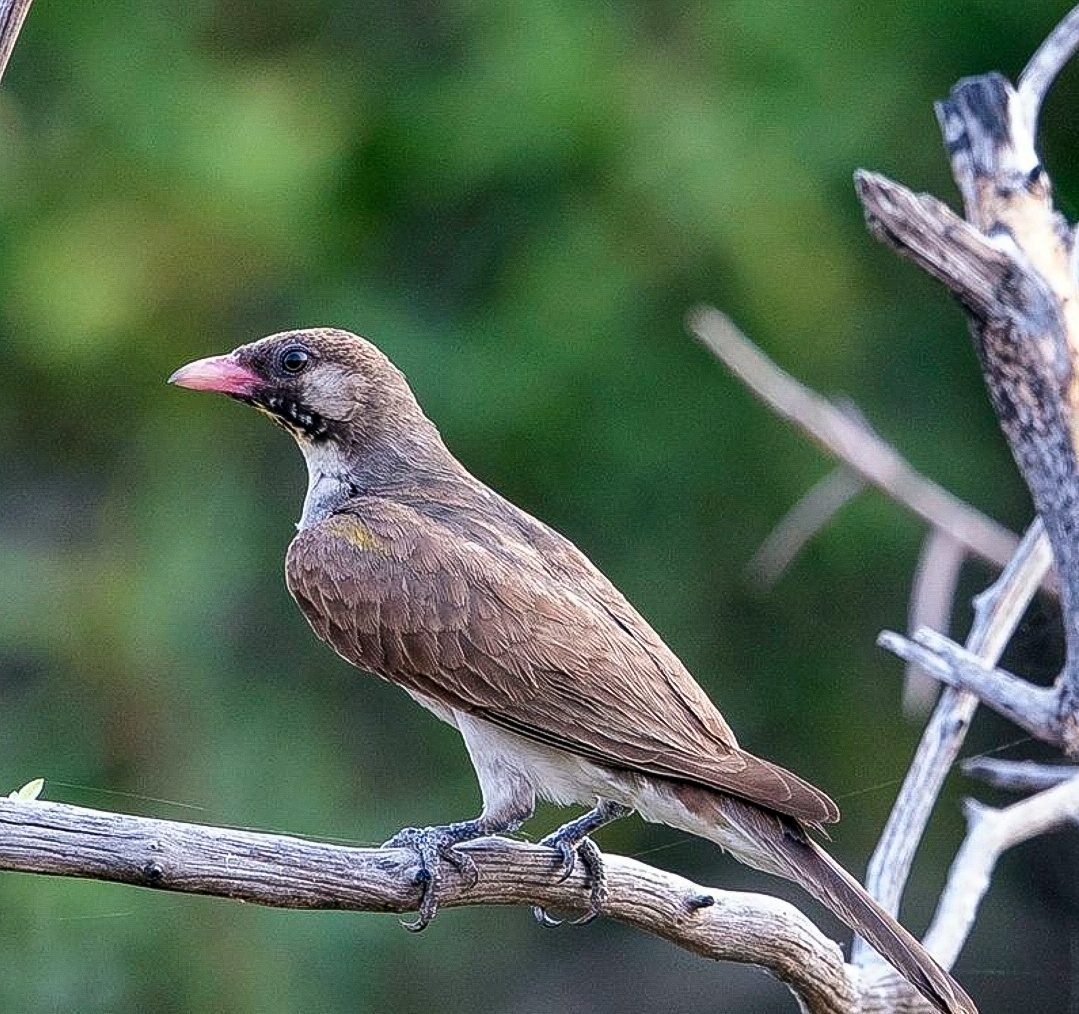The aspiring Trail Guides cross-check equipment before each loading a neatly compressed pack onto their back. There will be no demarcated campsites, prescribed routes or even tents for the next four days. During the Mentorship Trail we wish to explore beyond convention, we wish to explore amidst the spheres of holistic Trails Guiding.
The Trails Guide vocation is more multifaceted than popular definition or even qualification criteria would suggest. That is why the Lowveld Trails Co. approach and Trails Guiding philosophy is based on the concept of three multi-disciplinary spheres. This is best represented and described by a basic Venn diagram (figure below text). Aligned with our philosophy and values, we are adamant that a walking safari experience should take place over multiple days. The more primitive and remote, the better. This creates an appropriate atmosphere and provides the Trails Guide with the necessary ‘tools’ required to achieve their ultimate objective; to facilitate a fulfilling Trails experience.
Accordingly, the first of the three spheres can be referred to as genius loci – the spirit of place. It represents the Natural component. The relationships between all of the components within an ecosystem and ultimately the feeling of purposeful wildness. It need not be restricted to the physical. Afterall, this is the original and permanent home of the human spirit. Therefore, this sphere also includes an emotional component and all associated events, such as when a dysfunctional (over-civilised) individual reconnects with Nature and functional space through spontaneous intuitive insight. This wild space is the source of our passion and inspiration as naturalists and should therefore be treated with the utmost respect at all times.
The second sphere encompasses all the ‘Soft Skills’. These are non-quantifiable aspects which determines the Trails Guides success as facilitator. This is the space in which we spend the majority of our guiding time, probably as much as 85 percent of our time is spent in this sphere each Trail. It includes personal and social relations, intuition, attitude, approach to Nature, philosphy and experience. This is essentially the more feminine of the two latter spheres. Correspondingly, a humble or ‘soft’ temperament towards the environment is beneficial. Limiting intentional human-animal interaction is recommended by keeping encounters brief, unless the group is able to go safely undetected. The Trails Guide should at all times strive to be considerate of the animal encountered and not force a response due to his/her behaviour. The nucleus of Trails Guiding, as with most applied sciences, is experience. Merely knowing when to avoid an encounter is valuable beyond recognition.
Nonetheless, occupational Trails Guides will encounter threatening situations due to the combination of an extraordinary amount of time spent in the field and the infinite possibiliets of circumstance (weather, structure, animals in motion and at rest etc.). Fortuitously, and perhaps contrarary to popular belief, their work environment is very forgiving and unconfrontational as they manage to negotiate more than ninety-nine point nine percent of encounters without converting them to lifeless matter.
On extremely rare occasions there may be an event that is out of everyones control and for which the Trails Guide can take no blame. The notion that an occupational Trails Guide can be guarenteed of going his/her entire career without having to shoot an animal in defence, as long as they conduct themselves according to the textbook, speaks for a lack of experience. For this exact reason, we wholehartedly disagree with the notion of conducting Trails without a rifle or taking a predetermined decision to never shoot an animal on Trail, even in self defense. This perception is the equivalent of arguing that a driver by profession is exempt from a vehicle accident, as long as he/she obeys the K53 (drivers license test) guidelines religiously. What then about the other variable that jumps a stop street, red traffic light or falls asleep behind the steering wheel? The law abiding driver has no influence on this eventuality, and considering the amount of time he/she spends on the road, is clearly not exempt from falling victim to an accident. The driver in him/herself is not a detached traffic component, just like the Trails Guide is not isolated from a natural environment and it’s infinite possibilities of circumstance.
The third sphere is concerned with ‘Hard Skills’. This is a very impersonal space, which includes the practical and physical skills required while out on Primitive Trail. Some of the hard skills include making fire (often by friction), securing and collecting water, camp site selection, rehabilitating the fire, theoretical knowledge and shooting. These skills are specific and quantifyable and can therefore be assessed. Trails Guides generally spend very little, probably less than 15 percent, of the total Trail time in this sphere. For example, shooting is a hard skill that should by right be practiced ad nauseum, but will only account for a nano fraction of a Trails Guides hard skill repertoire during his/her career, if at all. This sphere pulses with masculinity and can provide refuge for inflated egos. A temperament driven by bravado and dominion, where a group overstays their welcome at a sighting or repeatedly force a sighting where it should be avoided, is sure to land both guides and guests in a very unnecessary and dangerous predicament.
Due to it’s nature, the trails Guide qualification is based predominantly within this sphere. Admittedly it is extremely difficult to quantify a Trails Guides understanding and appreciation of genius loci and application of soft skills. However, when you consider the ‘interdisciplinary spheres of Trails Guiding’ concept, achieving the Trails Guide qualification is merely an acknwledgement that a particular candidate has complied with minimum legal requirements – within a single Trails Guiding sphere. This juncture then essentially represents the beginning of a Trails Guides journey from where he/she can start to delve into the other two spheres and make strides toward becoming a more holistic Trails Guide. In actual fact, the Trails Guide journey does not end at achieving the qualification, it is merely the beginning.
Fortunately, major strides have been made in the South African Trails Guide industry of late with the incorporation of a mandatory and structured mentorship constituent. By learning from experienced mentors, aspiring Trails Guides will essentially be standing on the shoulders of those who have gone before them. It provides much needed continuity.
Furthermore, by synergising the holistic Trails Guiding concept with structured mentorship programmes, we will not only stay current as a freternity, but help drive the industry and raise the level of Trails Guiding across all guiding sectors in South Africa.

